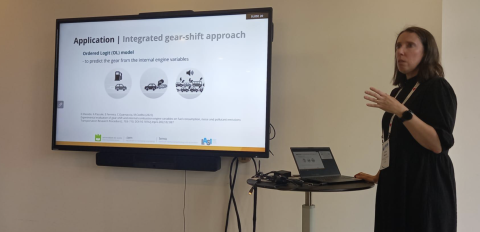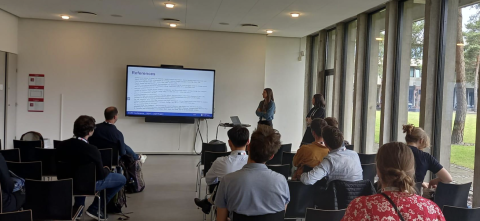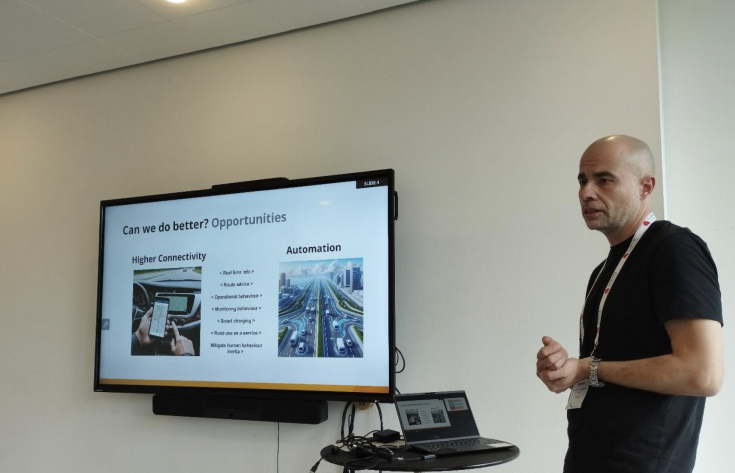EMBRACER at European Operational Research Conference
The 33rd European Conference on Operational Research (EURO2024) took place in Copenhagen, Denmark at the Technical University of Denmark (DTU) and the EMBRACER Lead Partner (LP) was invited to contribute to a special session under the stream of Transportation. The University of Aveiro took the opportunity to share the achievements of the EMBRACER project and to promote the project's vision for the future and objectives to a large audience, involving researchers, public and private transport operators, IT and software companies, consultants and city representatives. Under this context, EMBRACER LP organised two special sessions exploring advanced solutions on crucial challenges in the project topics.
The two EMBRACER-led sessions, “Advancing mobility towards sustainable solutions”, served as a platform for interregional collaboration and knowledge exchange. By inviting leading researchers to present their latest findings, the two sessions facilitated a dialogue between academic expertise and practical implementation, highlighting the importance of aligning research with real-world challenges.

The sessions covered a wide range of innovative approaches, reflecting the diverse nature of the EMBRACER project's goals:
● Integrating Electric Vehicles and Public Transport: The participants explored novel models for optimising electric dial-a-ride services, effectively combining mass transit with on-demand options while addressing the complexities of charging infrastructure.
● Data-Driven Analysis for Sustainable Traffic Systems: The Two-Step-SDP methodology was showcased by the LP representative as a relevant tool for extracting valuable insights from vehicle dynamics data, enabling data-driven decision-making for sustainable transport planning.
● Optimising Traffic Distribution in Mixed Traffic Scenarios: LP delved into the complex challenges of integrating connected and automated vehicles (CAVs) into intercity corridors, emphasising the importance of strategic traffic distribution to minimise travel times and environmental impact outside urban contexts.
● Designing and Operating Regional Shared Automated Electric Vehicle (SAEV) Systems: Participants learn about new models for designing and operating regional SAEV systems offering a blueprint for the future of shared mobility while considering factors like vehicle range, charging infrastructure, and operational constraints.
● Linking Freight Transport and Energy Systems: The interdependence of freight transport and energy systems was brought to the forefront, highlighting the need for integrated modelling to guide strategic investments towards a decarbonized transport sector.
● New methods for Coordinated Traffic Control: Participants explored an innovative method for predicting connected vehicles dynamics in paving the way for optimised traffic signal control to reduce congestion and emissions.
● Aligning Public Charging Infrastructure with EV Driver Behaviour: Experts emphasised the importance of tailoring public charging infrastructure to the diverse behaviours of EV drivers’ clusters, highlighting the potential of behaviour-steering policies for efficient utilisation.
● Strategic Investment Decisions for Decarbonization: The complex relationship between transport and energy systems was explored, exemplifying a framework for analysing and making informed investment decisions to achieve ambitious decarbonization goals.

The discussions during the sessions are expected to contribute to the ongoing efforts in developing sustainable transport systems, bridging the gap between academic research and practical implementation, and playing a relevant role in shaping the future of mobility, focusing on the needs of citizens, improving and enhancing access to more remote areas or those lacking an efficient transport system.
